Today’s question: can dogs drink milk? Not normally. Dogs may be lactose intolerant so be careful when giving milk to your dog. Want to know more? Scroll down for detailed answers.
As we all know, milk is the primary source of nutrients for all infant mammals. Milk is the first thing to pass our lips, providing us with the essential fats, vitamins and proteins we need at a developmental stage. We literally would not survive without milk. Humans and animals alike have survived, evolved, and lived for hundreds of years, on the premise that milk is offered upon being born. The continuation of drinking milk is beneficial to mammals of all ages, but for newborns and infants, milk is the food and drink essential for survival.
Whilst all mammals produce their own milk for their own infants, humans have gotten into the habit of stealing milk from other mammals, most notably, the disgruntled bovine. But we also drink goat’s milk. Globally, there are probably a whole host of disgruntled mammals shooting daggers at the human race for taking their milk.
Humans drinking milk from cows and goats may seem odd given that we do not ‘need’ milk to survive in adulthood, whereas animals ‘need’ milk from their mothers. While milk is not a need for adult humans, we take the milk anyway and do as we please. We use milk a drink, as an added benefit to cereal and other foods, or to make ice cream and special bath cream. We may even feed the milk of a cow or goat to another animal in our home.
Health benefits of milk
Humans drink milk for many reasons: the drink is tasty, the milk is nutritious and the creaminess of the milk will allow certain dishes take on a different and desirable texture. There are many non life threatening reasons to drink milk, however there are also reasons of dire need, such as mammals drinking milk solely out of instinct at a primary level. Needing milk and seeking out the nourishment is one of the defining features of being a mammal. Producing milk for your offspring and consuming milk for survival are keys to mammal life.
On a general note, yes, dogs can and do drink milk; just like every other mammal. They drink the milk of their mother when born, and then gradually move to drinking water and eating dog food. If your dog seems to enjoy random drops of water or drinks milk from the cup of a family member, you may wonder if you should add the milk into the diet of you pup and add a bit of a variety, or a little extra nourishment.
Which milk to choose from? What about cow’s milk? Or goat’s milk? Almond, coconut, or soy milk? Or any other milk of interest for that matter? We will begin with the most commonly questioned milk, cow’s milk.
Cow’s milk
Cow’s milk is a natural and excellent source of calcium. Milk from cows also provides the drinker with vitamin D and potassium, whilst being a complete protein source on top of that. The list of reasons, nutritionally or otherwise, is endless when we consider its benefits for human consumption. Those who consume cow’s milk may also use the milk as an additive rather than a simple drink. Adding to baking ingredients, cereals, and soup is another good way to enjoy the benefits of milk without drinking an entire serving from a glass.
Modern use of milk
Whole milk is milk used for babies and infants of the human race. Whole milk is often used for baby animals as well, to substitute the mother’s milk if needed. The texture of whole milk is thick and creamy and may become an accumulated taste.
However, whole milk is high in saturated fats, due to its original function. It was never intended to be a delicious treat, as we now consume it. No, milk was there to provide us with the bare nutritional intake that we needed in our primal phase. Over indulgence is bound to make you over weight, which is why so many mass production companies now produce things like “skim milk” and “low-fat milk”. These low calorie milks may be less apt to cause weight gain, but the milk choices are pretty tasteless when compared to the superior and flavorsome “whole milk” ranges available.
Aside from drinking milk, we use milk in so many other food types. Butter, for example, simply would not exist without milk. Nor would cheese, ice cream or yogurt. These food choices are all highly consumed food products, used in many different ways, across all generations and geographic locations. When given the facts, we can all agree that milk provides us with both nutritional benefits and delicious foods.
Do our furry friends enjoy milk?
Dogs are no different from humans, or all other mammals, when it comes to milk consumption. Milk provides our dogs with the initial fats and nutrients that they desperately need in their early phases of life. Unlike humans, dogs move from breast milk to solid foods fairly quickly. The average human will breastfeed for about 18 months, while dogs will breast feed for only 3 to 4 weeks. This makes a lot of sense when comparing the life expectancy of humans to that of dogs. Dog’s lives are lived in a more rapid pace than that of humans, so a dog will need to wean from mother’s milk much quicker than the baby human moves from their mother.
Baby dogs love milk, but even as adult dogs, they will still enjoy milk and milk products. For example, most dogs love cheese, but this of course does not mean that eating cheese is okay for them to eat it. Dogs will eat almost anything, regardless of whether or not the food is good for them. A lot of owners will give their dog a treat as a reward, which is a natural part of dog ownership. This treat often comes in the form of a small piece of delicious cheese. Cheese has the added benefit of being relatively malleable, thereby more easily wrapped around and hiding a bit of medicine or a prevention pill from a dog who will not take his medication. Cheese can be a healthy reward for your dog, but as with most things, it should be kept moderate.
A complicated relationship
As humans rampantly consume the milk of other mammals, the time old phenomenon of inter mammal breastfeeding repeatedly rears its peculiar and frankly disturbing head. Human-animal breastfeeding has been practiced through many different cultures over centuries. There have been cases of abandoned children being found feeding from a dog’s teat, and vice versa. Generally, western audiences are disgusted by animals cross feeding among mother’s milk, yet we have no problem with drinking cow or goat milk. Even grown adults drinking human milk meant for babies is considered vile. Humans may drink milk from an animal without questionable glances, but humans may not drink milk from another human without recourse.
When Mary Wollstonecraft was on her deathbed with puerperal fever, doctors brought puppies to feed from her mammary glands to draw milk. These methods were used in an attempt to help her womb contract and release the infected placenta which was poisoning her body. Whatever this may have done for Wollstonecraft, how did this affect the puppies? In reality, the puppies feeding from Mary Wollstonecraft was probably close to the same actions as if the puppies had fed from their biological mother. Wollstonecraft survived the fever and went on to write numerous novels afterwards.
Can dogs drink milk?
When it comes to actively feeding our dogs the milk that we ourselves consume, the feeding is best done only in moderation. If you feel the need to give your dog milk, try offering the milk out in small doses. Watch how the dog responds to the milk, as distaste may show, or stomach upset. The milk you give the pup may be beneficial for a puppy without a mother, but again, this should be in moderation on a trial and error basis. Cow or goat milk certainly will not kill them, but particular dogs may show signs of abdominal distress, such as vomiting or diarrhea. If stomach upset is the case, you probably a have been given the good idea of finding other resources.
Puppies may do better at digesting milk than adult dogs. Most adult dogs become lactose intolerant as they age. This pattern is similar to that of humans. Babies drink the milk of the mother or a closely related substance for approximately the first 18 months of life. After the first three years of life, human stomachs may become intolerant of the substance and have a reaction when consumed. Puppies are similar and should enjoy milk as needed, but when offering an older dog, be sure to care and think of the possible stomach upset that could occur.
Here is a cute puppy drinking milk:
A note of caution
With the above story of pups breastfeeding on a women for both of their benefits, one may wonder if breastfeeding your own dog or puppies is considered worthwhile. As for breastfeeding your dog from your own resources, well… that is a topic up to you for consideration. But depending on your culture, and if you are reading this article, breastfeeding your dog is probably quite obvious to be an unacceptable practice.
When thinking of giving your dog milk, many people will think of kittens lapping up cow milk out of a delicate bowl as a healthy treat. If kittens can drink milk to of a pretty bowl, shouldn’t dogs be allotted the same luxury? Kittens drinking milk is actually a frequently bad decision. Cats will often vomit or feel distress in their bowels having drunk milk. The same goes for most dogs. Stomach upset and dairy intolerance is a subjective thing, but most of the time milk can lead to discomfort for the dog.
But before you even consider feeding your dog milk, you need to know if they have any sort of dairy intolerance. Many dogs, you will find, do suffer from a dairy intolerance, which can make them quite ill. They may suffer from short-term digestive issues like diarrhea, flatulence, and various bowel complications. Consult your vet before thinking about offering over some milk to your dog. In fact, any food being introduced, but with added emphasis on dairy, should be done so with caution and after a discussion with your preferred veterinarian.
Regular milk consumption not recommended
Realistically, there is absolutely no need to give your dog milk, unless the dog is a puppy that requires dog milk in the early days to survive. Cow milk for dogs is usually a bad idea; the same nutritional benefits can be achieved from other resources without the consequences and at a cheaper price. Most quality dog foods will provide your dog with the vitamins, protein and other nutrients that it needs at is particular developmental stage. If you find the benefits of milk are so high for your dog that you cannot control the need to offer it to your dog, offer the vitamins as a chewable substance rather than in liquid form. Having a vitamin may prevent the stomach upset and potential mess you will both have to deal with.
Whilst cow milk is certainly not going to kill your dog, it probably will upset many areas of the digestive tract to some degree. Lactose found in milk passes through their GI tracts and into their colons undigested. This undigested sugar draws water into the colon, resulting in diarrhea. The fermentation of bacteria in their colon may result in flatulence and discomfort, so it is better not to risk these things and just avoid giving your dog milk.
Unless your dog is actually lactose intolerant, a lick of your ice cream here and there should not pose any problems. But giving, in particular, a grown dog milk on a regular basis is definitely a bad idea. As is making your dog an extra large sundae to go along with yours.
References:
http://www.petmd.com/dog/nutrition/can-dogs-drink-milk
https://www.dogfoodadvisor.com/dog-feeding-tips/dogs-milk-dairy-products/
http://pets.webmd.com/dogs/ss/slideshow-foods-your-dog-should-never-eat

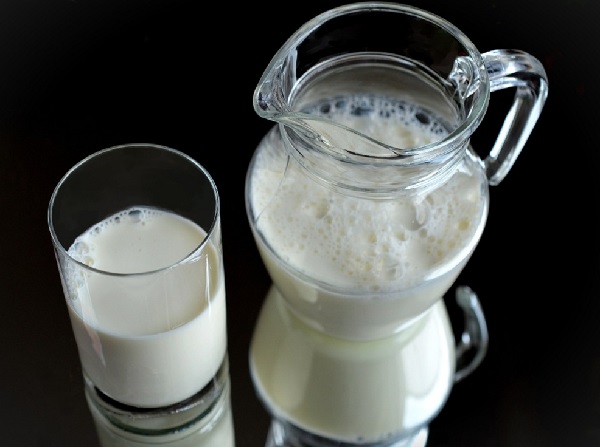
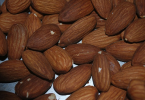
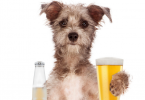


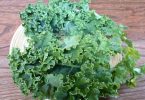
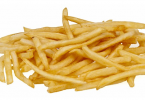
Leave a Comment